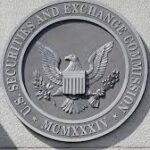Insider trading in the United States represents a significant challenge to the integrity of financial markets, characterized by the illegal buying or selling of securities based on material, non-public information. This essay explores the definition and legal framework of insider trading, its impact on market fairness and investor confidence, notable cases and enforcement efforts, and ongoing debates surrounding regulatory approaches and ethical considerations.
Definition and Legal Framework
Insider trading occurs when individuals, typically corporate insiders such as executives, directors, or employees, trade securities based on confidential information not yet available to the public. This privileged access to material information gives insiders an unfair advantage over other market participants, violating principles of fairness and equal access to information. The legal framework governing insider trading in the United States is primarily outlined in the Securities Exchange Act of 1934 and enforced by the Securities and Exchange Commission (SEC) and Department of Justice (DOJ).
Impact on Market Fairness and Investor Confidence
The prevalence of insider trading undermines the integrity of financial markets by eroding investor confidence and distorting price discovery mechanisms. When insiders exploit non-public information for personal gain, it undermines the fundamental principle of market efficiency, where prices should reflect all available information. This unfair advantage skews market outcomes, disadvantaging individual investors and creating an uneven playing field. Moreover, the perception of widespread insider trading can deter investors from participating in capital markets, reducing liquidity and hindering economic growth.
Notable Cases and Enforcement Efforts
Several high-profile insider trading cases have garnered public attention and underscored the seriousness of the offense. Examples include the prosecution of corporate executives like Ivan Boesky and Raj Rajaratnam, whose illegal trading schemes resulted in substantial fines, prison sentences, and reputational damage. Enforcement efforts by regulatory agencies like the SEC and DOJ have intensified in recent years, employing sophisticated surveillance techniques, whistleblower programs, and cooperation agreements to detect and prosecute insider trading violations more effectively.
Regulatory Approaches and Ethical Considerations
Debates surrounding insider trading encompass various regulatory approaches and ethical considerations. Proponents of strict enforcement argue that deterrence is essential to maintain market integrity and protect investors from exploitation. They advocate for clear rules, robust enforcement mechanisms, and severe penalties for violators. Conversely, critics question the efficacy of regulatory efforts, pointing to challenges in detecting and prosecuting insider trading, as well as concerns about unintended consequences, such as chilling legitimate information sharing and innovation.
Delving deeper into the topic of insider trading in the United States, it’s essential to explore the motivations behind insider trading, the mechanisms through which it occurs, the impact on corporate governance and shareholder rights, and the evolving regulatory landscape aimed at addressing this illicit activity.
Motivations and Mechanisms
Insider trading can be driven by various motivations, including greed, opportunism, and the desire to gain a competitive advantage in the market. Corporate insiders may exploit their access to material non-public information to execute profitable trades or tip off others for personal gain. Insider trading can take various forms, from direct purchases or sales of securities to more complex schemes involving insider trading networks or the misuse of confidential information for personal benefit.
Impact on Corporate Governance and Shareholder Rights
The prevalence of insider trading undermines the principles of transparency and fairness in corporate governance, eroding shareholder confidence and trust in corporate leadership. When insiders engage in illicit trading activities, they prioritize their own interests over the interests of shareholders, compromising the integrity of the company’s decision-making processes. Moreover, insider trading can distort market signals, leading to mispricing of securities and inefficient resource allocation.

Regulatory Landscape and Enforcement Challenges
The regulatory landscape governing insider trading in the United States has evolved over time, with legislative measures aimed at deterring and punishing unlawful conduct. The Securities Exchange Act of 1934 and subsequent regulations, such as Rule 10b-5, prohibit the use of material non-public information in securities transactions and impose penalties for violations. However, enforcement of insider trading laws faces numerous challenges, including the difficulty of proving intent, the complexity of financial markets, and the global nature of illicit trading activities.
Technological Advances and Insider Trading Risks
Technological advances have introduced new challenges and risks in the detection and prevention of insider trading. High-frequency trading, algorithmic trading, and the proliferation of electronic communication networks have increased the speed and volume of market transactions, creating opportunities for insider trading to occur at lightning speed. Regulators and law enforcement agencies must adapt their surveillance techniques and analytical tools to keep pace with these technological developments and effectively combat insider trading in the digital age.
Corporate Compliance and Ethical Considerations
Corporate compliance programs play a crucial role in preventing insider trading within organizations. By implementing robust internal controls, training programs, and monitoring mechanisms, companies can promote a culture of ethical conduct and ensure compliance with securities laws. Moreover, fostering transparency and accountability in corporate governance structures enhances shareholder confidence and reinforces the principles of integrity and fairness in the marketplace
Global Impact and Cross-Border Enforcement
Insider trading is not confined to the United States; it occurs on a global scale, with interconnected financial markets facilitating cross-border transactions and information flows. As a result, coordinating enforcement efforts and harmonizing regulatory frameworks across jurisdictions presents significant challenges. International cooperation among regulatory authorities and law enforcement agencies is essential to address the transnational nature of insider trading and ensure consistent enforcement of securities laws.
Financial Institutions and Intermediaries
Financial institutions and intermediaries, such as investment banks, hedge funds, and brokerage firms, play a critical role in facilitating securities transactions and market activities. However, they also face inherent risks of insider trading, given their access to sensitive information and market influence. Regulators must closely monitor the activities of financial institutions and intermediaries to detect and deter insider trading, imposing strict compliance requirements and conducting regular audits to mitigate systemic risks.

Emerging Financial Technologies and Insider Trading Risks
The proliferation of financial technologies, such as algorithmic trading, blockchain, and decentralized finance (DeFi), introduces new challenges and opportunities in the realm of insider trading. While these technologies offer greater efficiency and accessibility in capital markets, they also present vulnerabilities that can be exploited by malicious actors. Regulators must stay abreast of technological advancements and proactively address emerging risks associated with insider trading in the digital era, leveraging innovative solutions and collaboration with industry stakeholders.
Economic Stability and Regulatory Reform
Insider trading can have far-reaching implications for economic stability, investor confidence, and market integrity. High-profile cases of insider trading scandals can erode trust in financial markets, leading to volatility and systemic disruptions. As such, policymakers and regulators must prioritize regulatory reform efforts aimed at strengthening investor protection, enhancing market transparency, and deterring illicit activities. This may involve updating existing regulations, imposing stricter penalties for violations, and promoting ethical standards of conduct among market participants.
Investor Education and Public Awareness
Empowering investors with knowledge and awareness about the risks and consequences of insider trading is crucial in fostering a culture of compliance and accountability. Investor education initiatives, public awareness campaigns, and transparent communication from regulatory authorities can help individuals make informed decisions and protect themselves against fraudulent schemes. By promoting financial literacy and ethical behavior, stakeholders can collectively contribute to maintaining the integrity and fairness of the financial markets.
Conclusion
Insider trading represents a multifaceted challenge with implications that extend beyond individual transactions to encompass broader issues of market integrity, regulatory compliance, and investor protection. Addressing these challenges requires a coordinated and proactive approach from regulators, financial institutions, investors, and other stakeholders. By leveraging technological innovations, enhancing international cooperation, and promoting ethical standards, the financial industry can strive towards a more transparent, resilient, and equitable marketplace for all participants.




